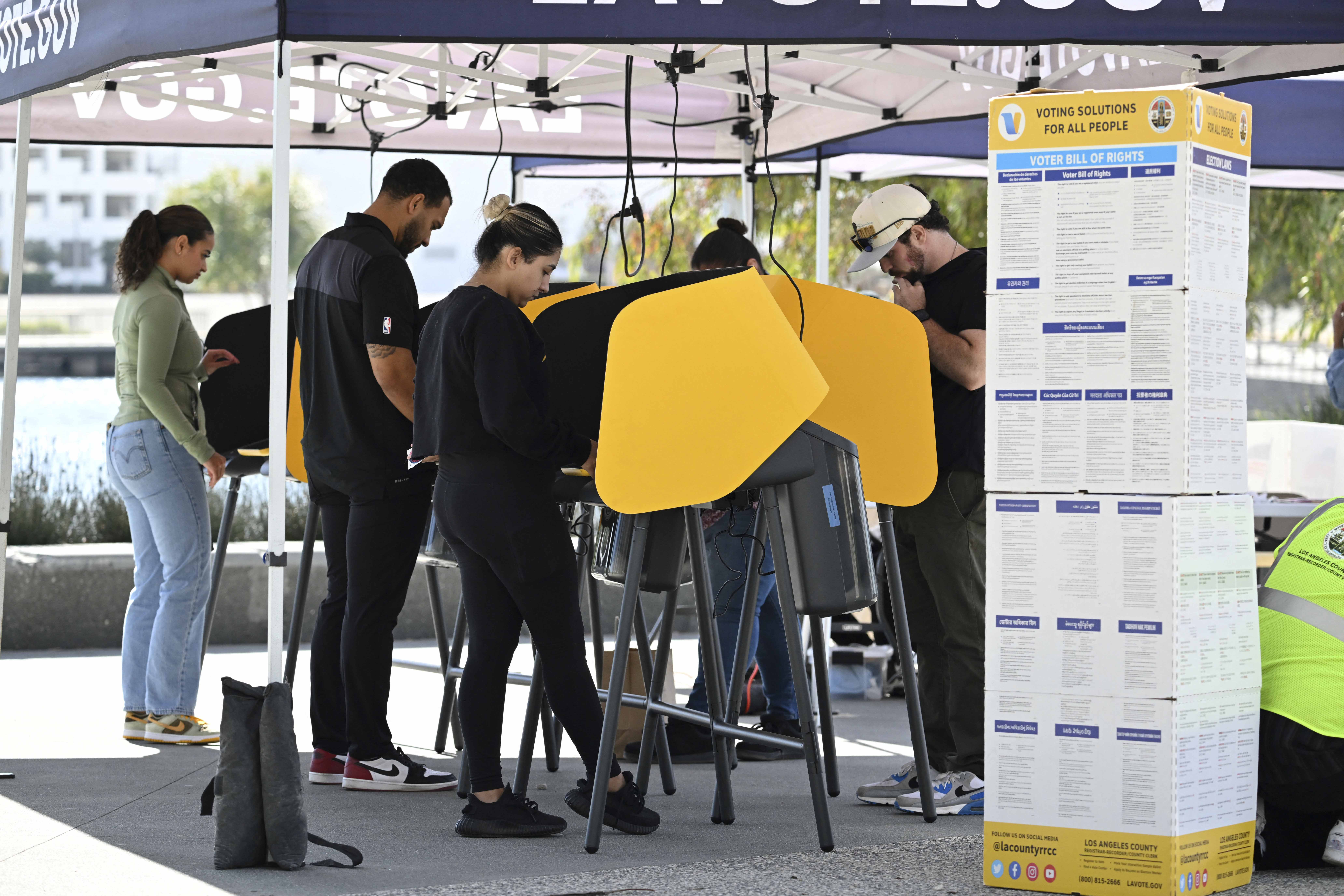A ballot measure that seeks to raise California’s minimum wage is on the verge of defeat, with some who voted against it saying they feared it could cause the price of goods and services to increase.
At issue is Proposition 32, which would add two dollars to the state’s current minimum wage, bringing the total to $18 per hour starting on Jan. 1 for employers with at least 26 workers.
The measure is losing by a 2 percent margin, down by about 290,000 votes out of more than 14.4 million ballots counted, as of Nov. 14, with 51 percent in favor and 49 percent opposed.
“We can’t just keep raising the minimum wage,” Eric Check, 47, an agricultural machine worker living in Merced, told The Epoch Times while waiting in line to vote. “It’s going to make everything more expensive for everybody.”
He said the cost of living is a problem for many in the state but expressed concern that raising pay for entry-level jobs could exacerbate the problem—an observation that matched the argument from the campaign against the proposition which said the measure “costs too much.”
By contrast, a 2023 study from the Centre for Economic Policy Research—a nonprofit, nonpartisan organization headquartered in London—concluded that higher wages have a minor impact on inflation and are helpful in allowing lower-income earners to keep pace with higher prices.
“Our analysis shows that the risk of further fueling inflation by increasing minimum wages is limited,” the authors wrote.
The economists urged caution, as wages would also need to increase across the board, or “wage distribution compression” would occur which could negatively affect some careers.
One voter said the issue is complex but said she would vote against it because it would be “unfair” to those who are already making slightly more than was proposed.
“It wouldn’t help the middle class which is struggling right now,” Jessica Gutierrez, a customer service representative in the Central Valley, told The Epoch Times. “And I think it will make things worse before it makes anything better.”
The nonpartisan Legislative Analyst’s Office said in a summary of the measure that the fiscal impact could be wide-ranging.
Increasing the minimum wage could cause other wages to rise, analysts said.
Prices would also likely increase, as costs to businesses would be higher, and some of these costs would be passed onto consumers, according to the summary—though analysts estimated the impact would be less than half a percentage point.
Analysts also expect profits would decrease for some businesses if the measure passed, which could cause tax revenues to decline.
Government expenditures would increase to cover payroll costs and for services performed by contractors, according to the summary, while some savings could occur as fewer people would enroll in programs for lower-income individuals.
“Combining these two pieces, total state and local government costs could go up or down,” analysts wrote, estimating fluctuations up to hundreds of millions of dollars annually.
Nearly 1.7 million ballots are still unprocessed statewide, and about 133,000 are undergoing further review after being challenged for signature verification and other issues.
Meanwhile, supporters point to the ballots yet to be counted from Alameda, Los Angeles, and San Francisco counties, among other liberal strongholds, as a sign that the proposition could still pass.
Others are less optimistic and suggest the current tally will be difficult to overcome, given that hundreds of thousands of votes are still processing from more conservative areas—including Orange, Riverside, and San Bernardino counties.
One proponent said higher wages would bring relief to those living in poverty.
“There are millions of people in the state who deserve to earn more,” Mark Williams of Sonoma County told The Epoch Times. “This is a commonsense measure. I’m surprised the vote is so close.”
The campaign for the measure said that more than 2 million Californians—including those working on farms, in retail, in homes, and as delivery drivers, among others—would benefit from the higher wages.
“We rely on essential workers to keep our state running and meet critical needs, but many low-wage workers and their families are living in poverty and facing housing insecurity and hunger,” the campaign website reads. “People who work full-time should get paid enough to live on and not have to take on second and third jobs just to keep a roof over their heads and feed their families.”
One group supporting the proposal said the higher pay will benefit the economy.
“[Higher pay] will reduce income inequality and improve the standard of living for millions of California workers,” the League of Women Voters said on the organization’s website. “And increased spending creates more jobs, making everyone better off.”
If the measure ultimately fails, the minimum wage will increase slightly to $16.50 an hour to account for inflation in 2025, as calculated by the state’s Department of Finance.
Certain fast-food franchises—with at least 60 locations nationwide—must pay employees at least $20 an hour after the state legislature passed a law that took effect in April.
A state lawmaker said singling out the fast food industry was unfair but also noted that the higher pay is causing other industries to raise wages to attract applicants.
“All businesses have to pay at least $20 an hour now to compete in the labor market,” Republican Leader Assemblyman James Gallagher told The Epoch Times.
Health care workers also earn higher minimum wages, with pay ranging from $18 an hour to $23 hourly depending on the size of the employer, as required by a law that took effect in October.
With voters seemingly denying Prop. 32, a rent control measure, and a proposal that would have made it easier for local governments to raise taxes, while approving a measure that strengthens penalties for certain drug and theft crimes, one voter said the state is moving toward the ideological center.
“California’s still blue, but maybe not as blue,” Edward Ring, author and Golden State resident, wrote Nov. 13 on X.














